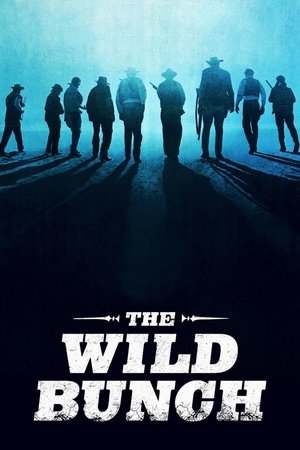
The Wild Bunch
There are no ‘good guys’ in The Wild Bunch, only bad guys and worse guys. The titular bunch are thieves and killers, but at least they won’t rob a dead man – unlike the posse of bounty hunters, led by Deke Thornton (Robert Ryan), sent by the railroad company to bring the bunch in dead or alive. Deke, himself a former bunch member, is considerably more evolved than the mercenaries railroad man Harrigan (Albert Dekker) has saddled him with (“chicken-stealing gutter trash,” Deke calls them). There is no love lost between Deke and bunch leader Pike Bishop (William Holden), but the former has only accepted the task of capturing the latter because success means freedom (Deke has been temporarily released from jail expressly to track down the bunch; as Harrigan warns him, it’s “Thirty days to get Pike or 30 days back to Yuma”); on the other hand, Pike holds no ill will toward Deke because he would do the same were the situation reversed. This is interesting because, according to Roger Ebert, men like Pike and Deke live (and, as it turns out, also die) by a code, and “The men provided to [Deke] by a railroad mogul are shifty and unreliable; they don't understand the code of the bunch” – but then the rest of the bunch doesn’t necessarily understand it either. Pike respects that Deke has given his word that he will chase the bunch to hell and back and hell again if need be; that the word was given to the railroad company is immaterial. But to Pike’s second in command, Dutch Engstrom (Ernest Borgnine), “That ain't what counts! It's who you give [your word] to.” So the code is at best hazy even to the bunch, and perhaps only Pike and Deke are really privy to it – but, considering they have been at odds with each other since before the events of the film, it stands to reason that one of them must have broken it. All of that notwithstanding, the code exists; maybe only in name, but it does – it has to, otherwise what do aging pistoleros such as Pike, and Deke, and Dutch, and Lyle (Warren Oates), and Tector (Ben Johnson) have left to convince themselves that they are at least the bad guys and not the worse? The only character who still believes in something is the much younger Angel (Jaime Sánchez), who wants to give some of the guns the gang plans to steal for the sadistic General Mapache (Emilio Fernández) to a band of Pancho Villa supporters (Pike and the others agree, though not before making sure Angel will forfeit his share of their earnings in exchange). While Angel has ideals, the others have dreams – mainly of “quitting” after one “last job” –, but it makes little difference; they all pay the price for their hopes and ambitions, because they have all gone the wrong away about them. If there ever was a film illustrating that he who lives by the sword dies by the sword, this is it. And yet, those bad guys… well, they weren’t all that bad after all, were they?
